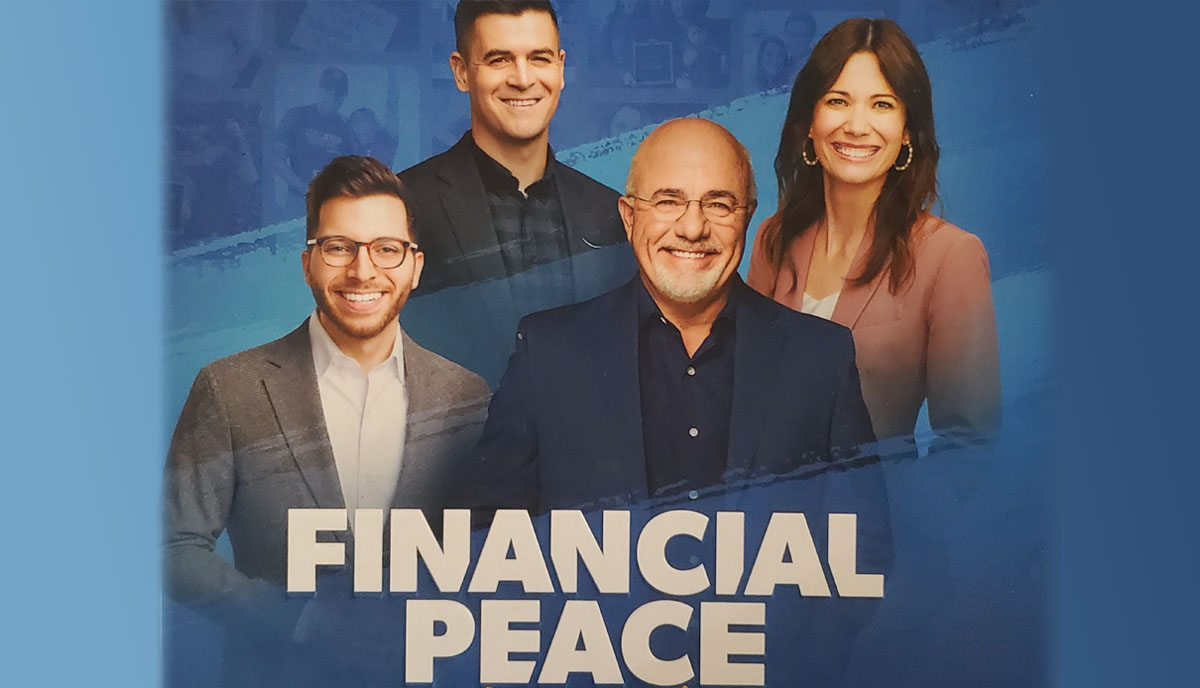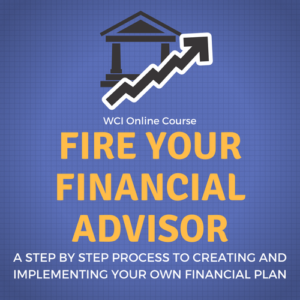A few months ago, a friend asked me if my wife and I would like to take Financial Peace University; a nine-week small group study to help families get their personal finances in order, developed by Dave Ramsey.
My friend knew we had already spent a decade teaching another similar course, Crown Financial Ministries, and that I currently teach personal finance concepts to physicians. He told me he wanted us to be in the class to give our perspective as a couple who has retired well. We thought it would be fun, so we agreed.
The course is built around Dave Ramsey’s ‘Baby Steps.’ I have seen many people on social media who think they can come up with a better version of his plan. But as Dave put it during the course, the baby steps are not broken and don’t need fixing. After completing the course, Dave is right, the baby steps don’t need fixing. If followed as presented in this course, the baby steps will indeed make your financial life secure and give you the ability to give beyond your imagination. I know there are other paths that would work also, but the baby steps are not broken.
The following are my thoughts upon completing the course. I hope they help you decide if you would benefit from taking the course yourself.
Setup
The cost to take the class is $79.99. My wife and I took the class for free as the person who ran it paid our fee. I guess he really wanted us to be in his class.
We received a workbook, online access to lots of helpful additional information, and a one-year membership to Every dollar, the Ramsey budgeting software.
One thing I love about this course is that all the videos we watch in class were also available to watch at home at our leisure. Some of the videos were worth watching twice. Because of this online availability, you can take the course at home on your own. But, those who take it on their own miss out on discussing the material and the discussion questions with others, which is a great part of the class.
Our class met weekly at the leader’s home for nine weeks to cover each of the nine lessons. At each class fresh baked cookies were served, which made me shoot for perfect attendance.
Each class started with prayer and a quick question followed by watching an hour-long video on the day’s topic. The videos were not always lectures done by Dave Ramsey, as other members of his organization also contributed. The videos were mostly recordings of the speaker on stage at a live event, which were very good, informative, and entertaining. Our workbooks had key points from the talk with blanks to be filled in during the videos. I enjoyed watching all the videos, even though I have a lot of experience in these topics. I even took a few notes of things I hadn’t thought of before.
After we watched the video, we had a group discussion. There are several prompting questions to get the discussion started. It was great to hear other people discuss how these topics have affected their family.
At the end of each class, there are several action steps that each student should consider taking before the next class. Taking these action steps is what will move you forward toward changing your financial future. Many of these steps should be completed before the next class to get the most from the course.
Baby Steps
Since the course is built around the baby steps, it is important for you to know what they are.
The first three steps are done in order and as quickly as possible.
Baby step 1: Save $1,000 for emergencies.
Baby step 2: Pay off all consumer debt apart from your home mortgage.
Baby step 3: Save 3-6 month’s expenses in an emergency fund.
The next four steps are done concurrently but prioritized by their order. For example, you do step 4 and if money is leftover, then use it for step 5, etc.
Baby step 4: Invest 15% of income into retirement accounts.
Baby step 5: Save for your children’s college education.
Baby step 6: Pay off your home mortgage.
Baby step 7: Build wealth and give generously.
First four classes cover the seven baby steps
The most urgent aspect of the class is getting you through the first three baby steps. These three steps are covered in their entirety in the first three weeks of class, one class each. The videos and discussion questions are very good at convincing you of the necessity to complete the baby step you are currently on before moving to the next.
Anyone who quickly gets through the first three baby steps will dramatically transform their family’s financial future. Having a 3-6-month emergency fund in the bank with the only remaining debt being a home mortgage is life changing for those who are struggling to pay their bills every month.
The last four baby steps are covered in the fourth week. They are not as urgent to complete as the first three, and are to be done concurrently, but prioritized by their order.
I really got a great perspective as to why it is important to do the baby steps in order and as fast as possible. Momentum is a great motivator. Once you get started, if you let off the gas, you will likely not return to your prior intensity.
Week 5: Spending
This is one of the most important lessons for physicians. Our problem is not that we don’t earn enough money. Our problem is we spend too much money, or we spend money we don’t yet have.
Almost every physician who gets into financial trouble did so because they lack the discipline to spend wisely. New attendings who buy expensive cars, or the ‘Doctor McMansion’ float to the top of the problem list.
New attendings with Debtabetic Neuropathy, click on the link to learn more, are way to easily talked into borrowing money to quickly look like a rich doctor. Curbing spending is a great way for physicians to get a good handle on their money.
Week 6: Understanding insurance
Having enough of the right insurance is a way to protect yourself from financial catastrophe. Many physicians are underinsured or are paying for insurance they should never have purchased. This is a good review of what you do need and what you don’t need.
Week 7: Building wealth
This week teaches how to invest wisely. Keeping physicians from investing in the latest stock offering, the next McDonalds, their best friend’s new restaurant, or the latest money fad (crypto anyone?) will go a long way to making sure the path to wealth is straight.
I love the simple way they set us up with an investment strategy. Simple and boring is the way it should be.
Week 8: Buying and selling a home
For most people, their home is the single largest expense they will ever have. Thus, making errors in this transaction can have lifelong consequences. The biggest error is buying too much house for your pocketbook which leads to becoming house poor.
Week 9: Outrageous generosity
Once you have your own finances in good working order, you can help others. Giving is not about what you do for them, but what it does for you. For me, this was the best lesson in the course. Maybe that was because this is the last step and the one I am on currently. Many people think they are doing all this financial work to help themselves become wealthier. But what it really does is help you gain a healthier perspective on money and gives you the ability to give beyond your imagination.
Other resources
Once you are in the Ramsey program you have access to more than a hundred other lectures they have online. You can get plugged into a Ramsey one-on-one coach, I’m not sure of the cost, but the first one-hour session is free. There is free unlimited access to nine different group coaching topics. You have a free year to use Every Dollar, the Ramsey budgeting program. There is access to a few financial calculators such as mortgage payoff and investing. You can get an insurance coverage checkup and I’m sure that will lead to one of their recommended insurance agents contacting you. They also have a list of recommended real estate agents, tax advisors, and investment advisors. There is free access to Ramsey SmartTax, their tax prep program. And you can listen to twenty-three of the Ramsey group’s audio books. I had previously read four of the available audio books, and they were good. This list does not include all of the available benefits, just some highlights.
Summary
Overall, it was a great class. I loved the one-hour lectures on each topic. But my favorite part was when the group discussed how each topic has affected their lives and what they are going to do to better their life in each area. I was not in 100% agreement of his statements, but I would say 98% was what I would tell you if you asked me.
The only negative I experienced from taking this course was receiving emails from the Ramsey group promoting all their ancillary resources. I’m now on their mailing list. I can remove myself if I want though.
No matter what your financial stage in life, you will gain benefits from taking this course. If you follow the baby steps, you will have a much happier and wealthier life. If you have already finished the baby steps, like my wife and I have, you will still find it informative.






The solid principles that Dave Ramsey teaches are what has made who I am today. I certainly recommend his teaching to anyone with a small business.